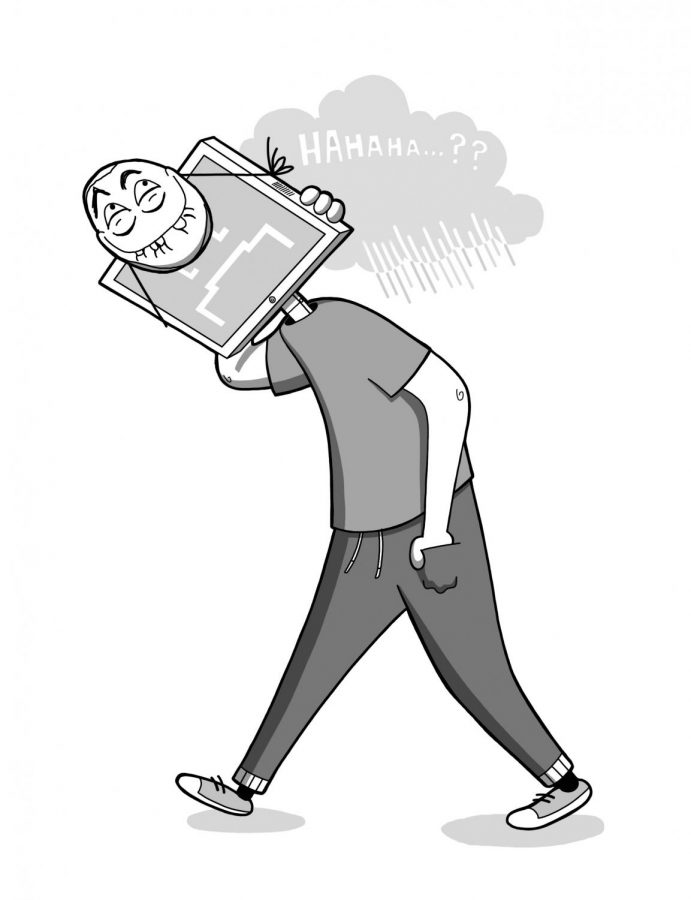Memes can help people cope
Using humor in moderation can reduce stress, relieve tension, help people reflect
Relatable memes can help people understand and observe their feelings from an outside perspective which can be beneficial to those in need of catharsis.
October 16, 2018
Twitter is filling faster and faster with relatable, low-hanging memes about depression, mental illness and suicide. Frankly, it’s getting tough to wade through all that garbage just to get to good content. The weird thing is while I can relate to them, I never find them genuinely funny.
Thanks to the efforts of activists, policymakers and doctors, the stigma around mental health has shifted from locking people in insane asylums to just uncomfortable chats with family. That positive change has also led to a mass of exaggerated memes about mental illness and suicide.
Twitter became a haven for people to voice their most personal psychological problems and many joined seeking an outlet for their feelings. The potent combination of relatability and self-deprecation was almost guaranteed success.
Jimmy Silk, Cable 8 special projects coordinator, has a different opinion.
“I haven’t come across a depression meme that’s gotten me good,” Silk said.
Everyone knows what you’re talking about when you say, “I hate myself.” Most of the time they have thought the same thing. That’s the strange part — most of the world has had a moment where something happened and a simple thought flashed through their head: “I am a bad person.”
Anyone can think to themselves what that phrase means to them. It’s a harsh thing to think about but everyone can relate to it. That little voice in their head who’s always rooting for them to lose. We can all relate and laugh at the fact that we’re not alone or in my case that maybe there are people who are worse than me.
It’s fine to relate to these memes. The important thing is whether they can actually benefit people with mental illness.
“It can be negative by normalizing depression and suicide, making people feel like it’s not a big issue,” Silk said. “That could actually be a positive thing too since they wouldn’t take their depression so seriously and it would have less of an impact.”
Patients who can laugh about and make light of their condition show much more improvement in individual psychotherapy. When humor is approached as a coping mechanism and strategy for relieving stress, it becomes a very potent medicine in relieving tension, according to an article published in Evidence-Based Complementary and Alternative Medicine.
Not only does humor work on an individual level, it is useful in group settings as well. In addition to it relieving tension, it also has the added benefit of connecting individuals in a group.
When humor is injected into a group therapy session it helps put everyone’s problems into perspective and takes away some of the severity of the situation. By making jokes about their issues, patients are able to actively grasp their own conditions.
To create a joke about their situation, a patient has to first analyze and understand their problem. This allows patients to observe their situation from the outside. This perspective helps the patient work through their problems as if they were someone else’s.
For most people, being able to talk about mental illness on social media is a benefit. It provides a needed emotional catharsis, can help people better understand others’ points of view and, most of all, they are relatable.









